The Regional Office for the Eastern Mediterranean has completed assessments of national preparedness for Ebola virus disease in 18 countries. Read the photo essay.
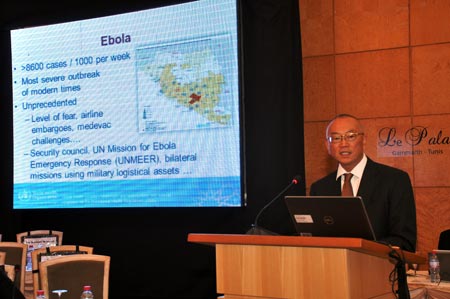
WHO’s Regional Office for the Eastern Mediterranean has completed rapid assessments of national preparedness for Ebola virus disease in 18 out of 22 countries of the Region. The missions took place following the 61st session of the WHO Regional Committee meeting in October in which Member States endorsed resolution EM/RC61/R.2 which urged countries “to urgently undertake a comprehensive assessment of their capacity to deal with a potential importation of Ebola, including through use of the checklist presented during the Regional Committee, in order to identify the main gaps and address them".
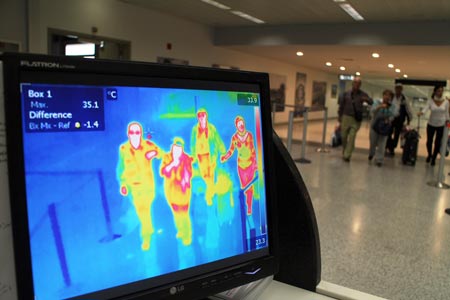
The primary objectives of the WHO missions were to assess preparedness and readiness measures for rapid response to an outbreak of Ebola in six areas: 1) coordination mechanisms; 2) points of entry; 3) surveillance and contact tracing; 4) infection prevention and control; 5) laboratory services; and 6) risk communications.
WHO teams assessed the extent and efficiency of coordination mechanisms between the health sector and other sectors, such as civil defence and aviation, as well as coordination between national health authorities and health partners, such as the private sector and nongovernmental organizations.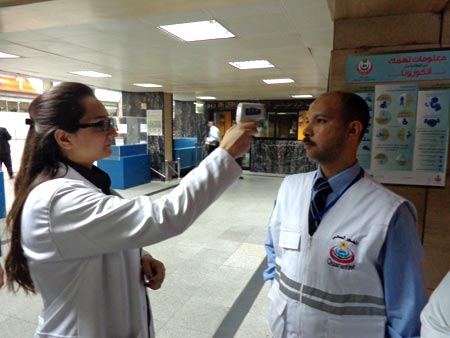
WHO experts also visited national airports and other points of entry to ensure that public health emergency plans and standard operational procedures were in place in accordance with the International Health Regulations (IHR 2005). This decreases the risk of infectious travellers boarding aircraft and other modes of transportation, preventing the international spread of disease while reducing the need for unnecessary restrictions and delays for travellers.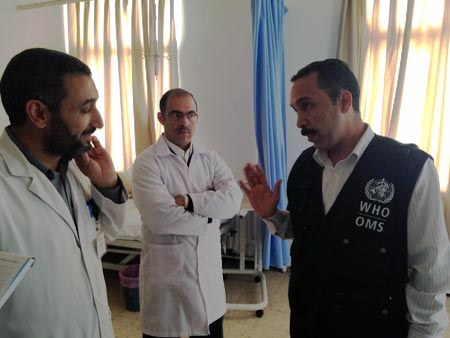
In order to successfully detect cases of Ebola, national surveillance systems should be established and function efficiently, and staff trained to detect signs and symptoms of the disease. This includes forming and training rapid response teams, establishing a fully equipped isolation centre and identifying a national or international WHO-recognized reference laboratory.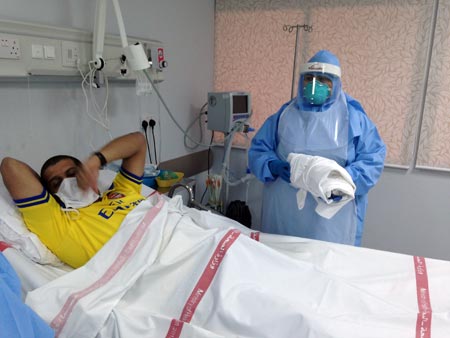
Health care workers in Solimaniyah Hospital in Bahrain conduct a simulation drill to demonstrate correct handling a suspected case of Ebola.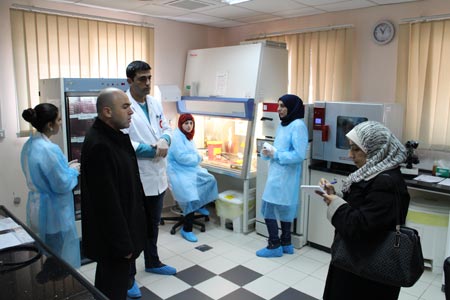
Key preparedness measures for hospital laboratories include ensuring sufficient stocks of appropriate personal protective equipment (PPE) and UN specimen triple packaging systems are available; health care workers are appropriately trained in putting on and removing PPEs; and staff involved in specimen collection are trained in collecting, storing, packaging and shipping specimens according to national and international guidelines.
In any public health emergency, all segments of society need to understand the risks that can expose them to an infectious disease, and their role in preventing this from happening. Risk communications for Ebola play a critical role in ensuring health professionals, the media and the community as a whole are provided with the right information to protect themselves and others.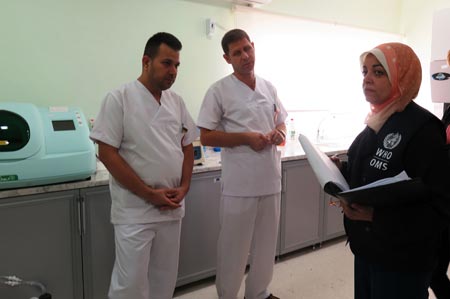
Within the overarching framework of the IHR, WHO believes that the findings of these missions represent opportunities for Member States to not only to scale up preparedness and response efforts for Ebola, but also to build and strengthen their public health system for rapid detection and response for any other emerging and unknown infectious disease threats.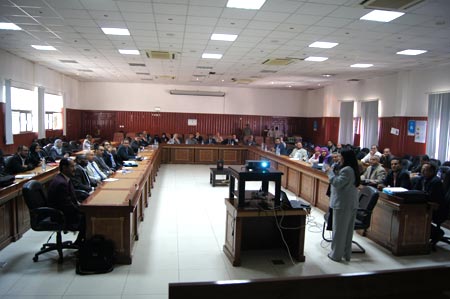
Following these missions, the Regional Office will host a meeting with all stakeholders in mid-January 2015 to present the findings and lessons learned from the assessments and develop a joint regional action plan on medium- and long-term measures for strengthening public health systems for emerging infectious diseases and other health security threats.
Additionally, the Regional Office is improving its surge capacity for response to potential Ebola outbreaks by establishing rapid response teams that can be deployed to any country in the Region in the event of any confirmed case of Ebola.


